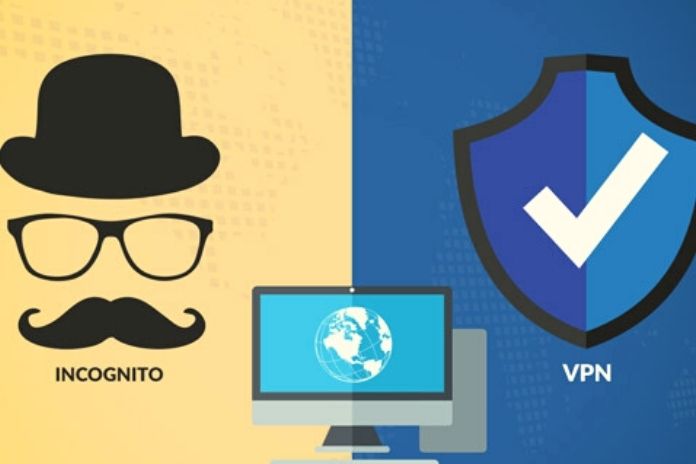Those who want to preserve online privacy mainly have two tools at their disposal: browsing incognito and using a virtual private network (VPN). The more sensitive information you share online every day, the greater the need to preserve your privacy when surfing the Internet. In today’s digital world, online accounts are the custodians of many personal and sensitive data, including e-mails, social profiles, home banking data, and payment cards.
Whether you want to avoid profiling by marketing agencies or protect yourself from attacks by cybercriminals, users have two tools at their disposal: use the incognito mode of their browser or a virtual private network (VPN). These are two very different tools, given that incognito browsing allows you to delete personal data locally: the browser will not store user information, such as browsing and search history.
On the other hand, a VPN uses encryption systems to protect the data entered by the user on the network and masks the IP address to prevent location tracking. Therefore, understanding the difference between incognito browsing and VPN allows you to choose with awareness the most suitable tool to preserve online privacy.
Incognito Browsing: What It Is And How It Works
The incognito is an integrated mode now in all browsers. In Microsoft Edge, it is called InPrivate. On Mozilla Firefox, it is called Anonymous Browsing, while on Google Chrome, it is Browsing incognito. All names, however, indicate the same functions: the browser does not store the user’s data locally on the PC, such as the search and browsing history, and disables cookies, including tracking ones, at least within certain limits.
For example, by connecting to a social network such as Facebook or your Amazon account, access data will not be saved. You will have to enter your credentials again to access your accounts at the next anonymous browsing session. Privacy is thus preserved, but only locally. This means that a person who connects to the same PC, even remotely, will not discover the online browsing habits of the user who used it before him.
Conversely, websites will still see the IP address you are connecting from and track its location. At the same time, your Internet Service Provider (ISP) will access your online activity data. If the user’s goal is to surf the net while maintaining anonymity, browsing incognito is not the tool that can guarantee this.
VPN: What It Is And How It Works
Virtual private networks, also known as VPN, are software that masks your IP address and redirects to a server remotely, which is configured by ‘ host service. The “real” IP address from which the user navigates and his physical location will not be visible to the websites visited. At the same time, the same ISPs will be able to trace the flow of data between the “real” IP address of their subscriber and server of the VPN service provider but not the final destination of the data itself.
Hiding the IP address effectively means preventing the tracking of online behavior by the sites visited, by any cybercriminals, or even by any government agencies more or less legitimately listening. An effective VPN software is based on a system of encryption of data traffic, both outgoing and incoming, concerning the user’s IP address: third-party sites and ISPs will not have access to the data itself and not even to the search and browsing history. Some VPNs also offer additional services, such as the ability to block tracking cookies, even those contained on websites that contain invasive advertisements.
VPN And Privacy: Limits And Risks
While using a VPN seems to preserve privacy at a higher level than just browsing incognito, there is one factor to consider: it won’t be just the user who has access to their data. Although the ISP and the sites visited while browsing will not access sensitive information, that same data may be available to the provider providing the VPN service.
For this reason, it is often preferable to use paid VPNs rather than free ones: if in the first case you pay with your own money, in the second case you risk paying the costs of the service with the personal data you were trying to preserve. The user who chooses a VPN will therefore have to evaluate the presence of a “no-log” policy, where the provider undertakes not to track the user while surfing the net and therefore not to share information with the ISP, advertisers, or government authorities that may require them.
Online Privacy: Combining VPN And Incognito Browsing
The two tools for preserving online privacy are different but at the same time complementary. On the one hand, the incognito browsing mode allows you to protect the user’s data, which would otherwise be saved locally on the computer from which it is accessed. On the other hand, the VPN hides the IP address and protects it from online tracking.
By using both tools at the same time, a much higher level of privacy protection can be obtained, almost complete anonymity online: no one will be able to access the user’s accounts, since the access and search history will not be saved, while web and ISP will not be able to locate its location or track its habits online. Consequently, no one will resell the user’s data to third parties for advertising or other purposes.
Also Read: Why Some Websites Block The VPN

